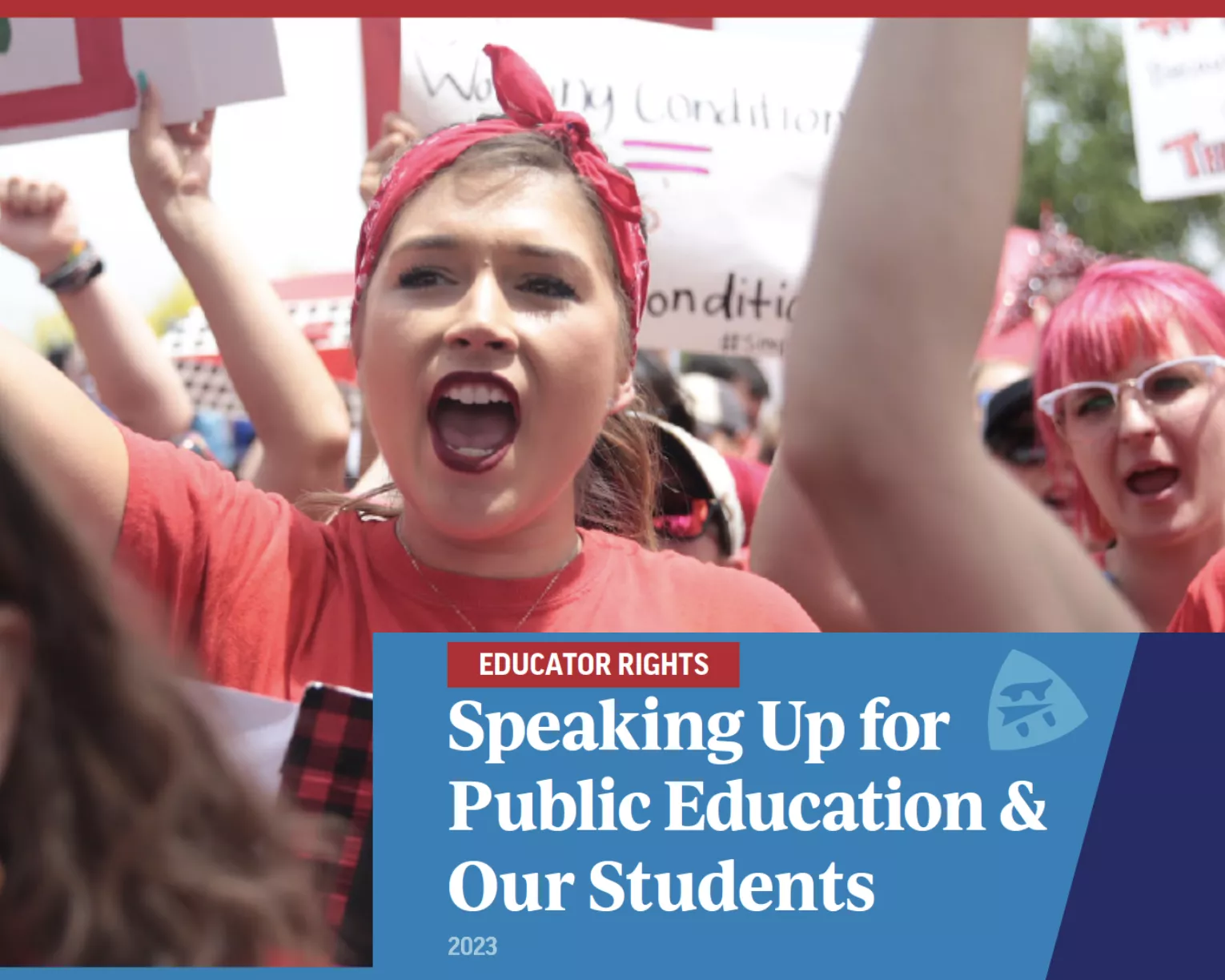Social Media Posts about Your School, Coworkers, and Students
As public school employees, posting about public schools can be tricky. On the one hand, the public cares a great deal about public schools. As educators, you are experts on public schools, so the public has a strong interest in hearing from you. On the other hand, schools are your employers. The public does not have a strong interest in hearing you complain about your coworkers, bosses, or students.
Compare the following actions. First, a high school teacher emails other teachers and staff at her school to say that she is tired of students falling asleep in her first period class. She complains that she is tired in the morning too, but she drinks her coffee and forces herself to come to school. She suggests that the students are lazy and probably stay up too late playing on their phones. She ends by asking her coworkers for ideas about dealing with sleepy students.
Second, a high school teacher sees that the school board is considering delaying the high school start time by several hours. She tweets a link to a newspaper story about the proposal, adding a brief message in support of the change. She notes that her students seem to struggle in the morning, often falling asleep in her first class, but do much better later in the day.
The second teacher’s social media post will receive much more protection than the first teacher’s email. The first teacher’s email was internal. The second teacher posted her message publicly. The first teacher wrote about her own problems with classroom management. The second teacher focused on a district-wide change that would affect the whole community. The first teacher insulted her students. The second teacher noted a problem her students were having but did not call them names.
A court would likely find that there was no or very limited public interest in the first teacher’s email. Moreover, the school district would likely be able to show that the email might disrupt the school community if made public. Therefore, the school would likely be able to discipline the first teacher but not the second.
While it may be appropriate to post your critique or disagreement with a new school policy, do not make public posts that insult your coworkers or, even worse, your students.
Schools cannot operate unless students and families trust educators. An educator destroys that trust by showing disgust or disrespect for their students.
For example, one teacher insulted her students in a blog post, suggesting that some dressed like “streetwalkers” and were “the devil’s spawn.” When students discovered the blog, they and their families complained to the school. Several families requested that their students have a different teacher. Eventually the school fired the teacher. A court determined that the school had the right to fire the teacher because her posts disrupted the school and made it difficult for the teacher to do her job
Another teacher was dismissed after she referred to her first grade students as “future criminals” and complained that she could not bring them to a “scared straight” event at the school.
Negative posts about coworkers may raise the same concerns. Many school districts have policies about social media that prohibit educators from insulting their students, coworkers, school, and school district.
